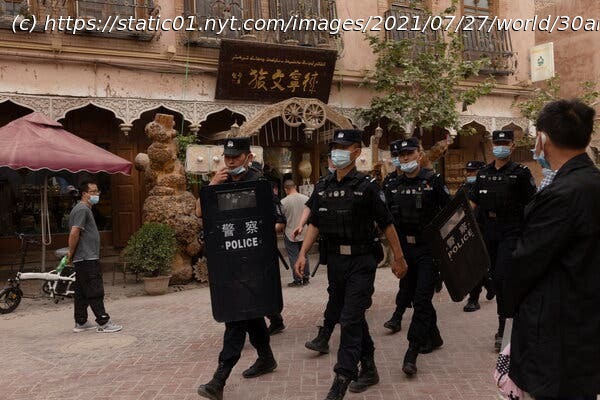The U.N.’s top human rights official cozied up to Beijing on a trip to China.
Good morning. We’re covering the U.N. human rights chief’s trip to China, India’s expanded protections for sex workers and Ukraine’s offensive in Kherson. The United Nations’ top human rights official spent six days in China, offering only limited criticism of China’s crackdown on predominantly Muslim minorities. Michelle Bachelet said that her visit “was not an investigation,” and that she had raised questions about China’s application of “counterterrorism and de-radicalization measures” when she spoke by video with Xi Jinping, China’s leader. In so doing, Bachelet couched her references to Xinjiang — where rights groups and scholars say China has held one million or more people in indoctrination camps — in the language preferred by Beijing: It has described its program as vocational training in response to terrorist attacks. Rights groups and overseas Uyghurs sharply condemned her remarks. Sophie Richardson, the China director at Human Rights Watch, called for “a credible investigation in the face of mountains of evidence of atrocity crimes, not another toothless dialogue.”
Analysis: China’s increasing global sway has translated into growing influence within the U.N. Critics described Bachelet’s trip as the latest example of China’s success in co-opting multinational bodies, including the W. H. O. , which endorsed parts of Beijing’s narrative over the pandemic’s origins. Propaganda: Authorities went to great lengths to frame the narrative around her visit, the first from a high commissioner for human rights since 2005. State media misquoted Bachelet as praising Beijing for “protecting human rights,” while officials threatened the families of Uyghurs who live abroad and had called for investigations. Business: Companies that source cotton from Xinjiang are pushing for visibility into operations to assess widespread accusations of forced labor. Sex work is legal in India, but practitioners often endure marginalization, police harassment and abuse. Sometimes, when police look for victims of sex trafficking, they detain prostitutes who have not committed crimes.






